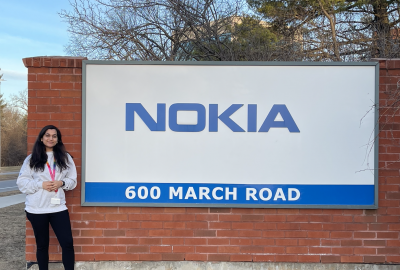
You did it. You successfully finished the interview, hopefully feeling satisfied. While this certainly means less stress on your end, keep the references you gave the employer in mind. Or better yet, as you read this article, keep these tips in mind when providing references to an employer. You may be surprised at what goes on during a reference check, as detailed below.
Reference Checks do Not Equal a Job Offer
When an interviewer asks about the availability of your references, you may take this as a sign that you are going to be getting a job offer once the reference checks are done. But in many cases, an interviewer is asking about your references because they are interested in possibly employing you, though they may be comparing you to another candidate in order to determine who would be more suitable to employ (based on your references and the interview itself). Nonetheless, don’t be discouraged, as having your references checked is still widely regarded as a good sign.
What Will Your References be Asked?
This is something everyone wants to know. There are a number of factors in determining what types of questions an interviewer will ask your references, including job type and your experience level, etc. Here’s some valuable information from About.com’s Alison Doyle about what your references may be asked “everything from how you would fit the position you're interviewing for to whether you were a dependable employee. Tell your references what type of job you are applying for and what you think the employer might want to know and ask them what responses they would give. It is better to get an unpleasant surprise in advance. If the reference isn't going to be positive you can always ask a different person for the reference.” Provide references to the interviewer that you know are trustworthy and that you have good relations with. In addition, it is also better to get a reference from someone in a leadership role at an organization, whether a boss or manager as their opinion can carry a lot more weight.
It's Not Just About the List
Depending on the type of job you are applying to, some interviewers may ask for more references from you and go past the references you have provided and pursue other contacts in your network (e.g. coworkers at your previous workplace, project managers, clients you may have worked with). With this in mind, remember to have at least three to five solid references that you know will be able to talk about your positive qualifications. These references do not need to be limited to your past employer either, as “it's perfectly acceptable to use references other than your employer. Business acquaintances, customers, [faculty instructors] […] can all make good references. If you volunteer, consider using leaders or other members of the organization as references” (source). In addition, if you do end up getting the job, the interviewer may call your references once you’re hired to get some further background knowledge about yourself (although this isn’t always common).
Words Aren't Everything
When an interviewer checks your references, you, of course, want them to speak about your work ethic, ability to work well with others, etc. But even with all these great words, the tone your reference speaks in can tell a massive amount of information to the interviewer. If your reference is happy to see your progress and gets along with you well, then their tone will probably be a lot more friendly and conversational compared to a reference who is only providing information to an interviewer about you because you asked (somewhat akin to a cake with no icing). In fact, “if the reference sounds hesitant, uncomfortable, or anxious to get off the phone, those are red flags” and may potentially alter your chances of getting the job you want. So make sure you are clear about your expectations when asking for someone to act as a reference, preferably someone who you get along with well.
Your References Should be Expecting a Call
This is probably one of the most important points, because it may affect your chance of getting a job offer before an interviewer even begins to talk to your reference. If you are going to provide a reference to an interviewer, you should try your best to make sure to ask that reference if they are free and willing to serve as a reference for you. If the interviewer calls one of your references and they either don’t answer or ask to call back, the interviewer generally will not call again. In addition to disrupting the interviewer’s time, this also gives the appearance that you are not organized (due to not contacting your references earlier), and so could make or break your chance of getting hired. Of course, unforeseen circumstances come up all the time, so if your reference isn’t available for an important reason when the interviewer calls them, try to explain to the employer what transpired. This might not necessarily ‘save’ you, but being honest is something integral, which many employers value.
Closing Thoughts
Reference checks are one of those things that everyone is nervous about. But keeping these tips in mind should assist greatly when considering which references to provide to an interviewer. There are exceptions to what has been listed here, but for the most part, these practices are fairly common across the board. If you need some advice on references or even just general interview tips, feel free to set up an appointment with an advisor at Career Services (more info here). Best of luck with your next opportunity!














